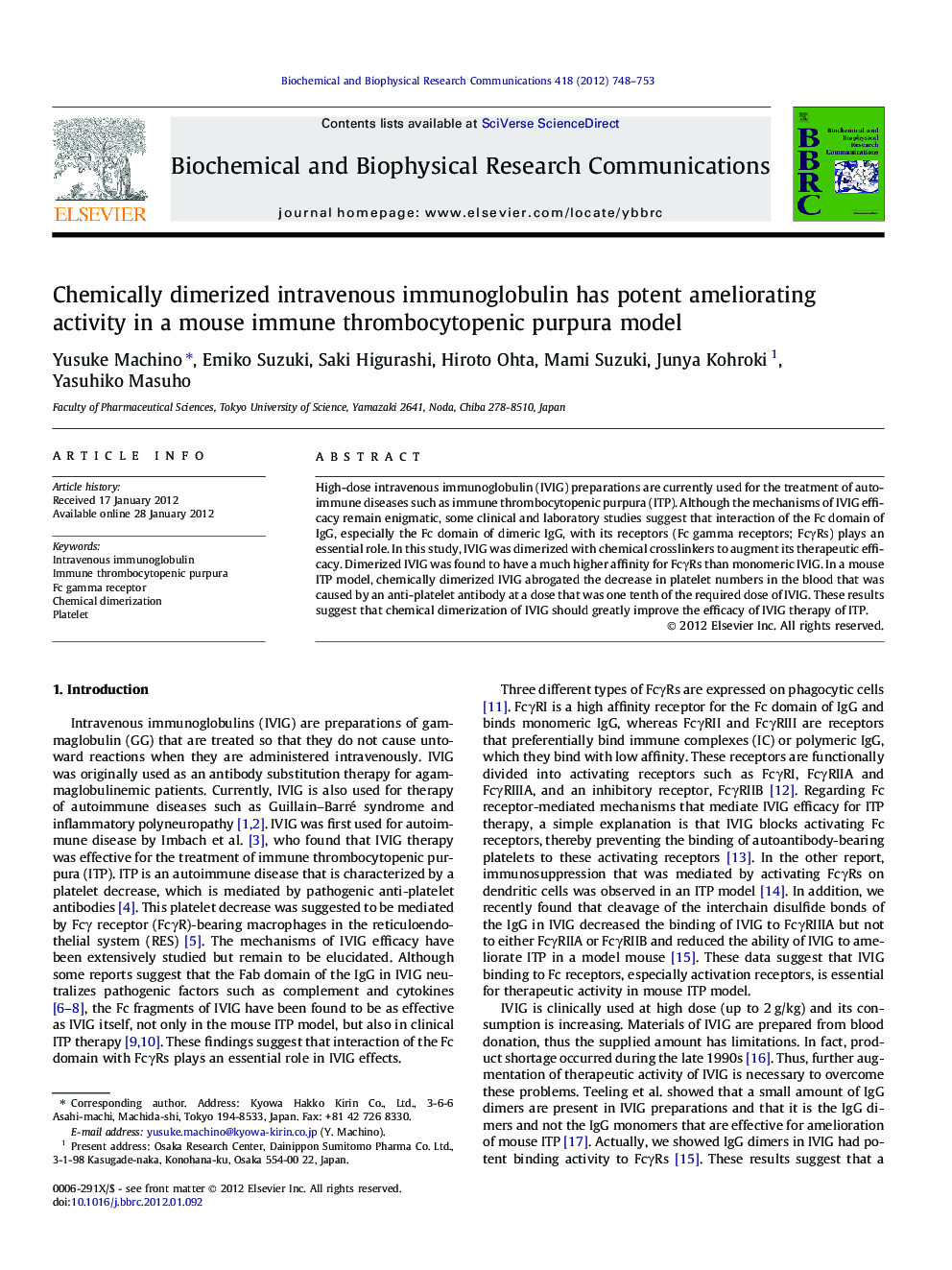| Article ID | Journal | Published Year | Pages | File Type |
|---|---|---|---|---|
| 1929905 | Biochemical and Biophysical Research Communications | 2012 | 6 Pages |
High-dose intravenous immunoglobulin (IVIG) preparations are currently used for the treatment of autoimmune diseases such as immune thrombocytopenic purpura (ITP). Although the mechanisms of IVIG efficacy remain enigmatic, some clinical and laboratory studies suggest that interaction of the Fc domain of IgG, especially the Fc domain of dimeric IgG, with its receptors (Fc gamma receptors; FcγRs) plays an essential role. In this study, IVIG was dimerized with chemical crosslinkers to augment its therapeutic efficacy. Dimerized IVIG was found to have a much higher affinity for FcγRs than monomeric IVIG. In a mouse ITP model, chemically dimerized IVIG abrogated the decrease in platelet numbers in the blood that was caused by an anti-platelet antibody at a dose that was one tenth of the required dose of IVIG. These results suggest that chemical dimerization of IVIG should greatly improve the efficacy of IVIG therapy of ITP.
► Chemically dimerized IVIG is prepared using two chemical crosslinkers. ► Chemically dimerized IVIG potently binds to FcγRs. ► The antigen binding activity of chemically dimerized IVIG is conserved. ► Chemically dimerized IVIG showed augmented therapeutic activity in a mouse ITP model.
